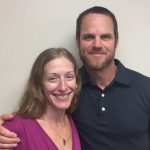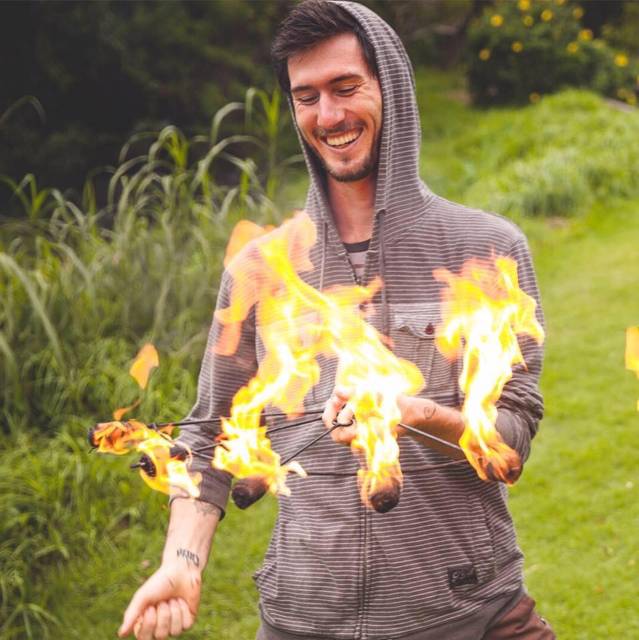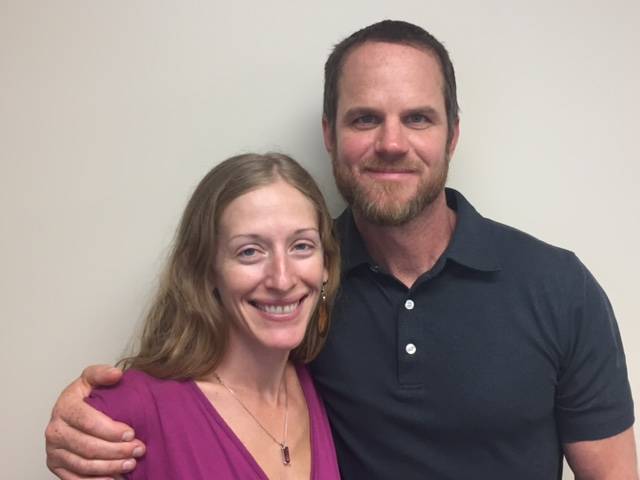Editor’s note: This is part 2 in a 4-part series this week introducing the final 8 Hawaii contestants vying for a $25K prize on Saturday.
David Real, along with his wife Jennifer, is the owner of Bokoa Farms and Forest in Ninole, specializing in forest restoration and barbecue wood chip production.
Noa Eads is the owner of Ai Pono Mushrooms in Waimea, where he will be cultivating oyster and other mushroom varieties.
Both companies are concerned with environmental stewardship and have developed innovative business models in support of that goal.
Bokoa Farms and Forest
After purchasing what he knew was the right property for his family, David Real was faced with the problem of how to make a living from it. He considered a number of ideas before coming to the realization that the solution was right in front of his eyes in the form of the koa trees on his property that were being choked out and killed by invasive strawberry guava, “waiawi.”
It was from this circumstance; six months of talking with foresters, community leaders and residents; and lots of research that his business was born.
He had found, he felt, a golden opportunity to create a business that met three goals: restoring the koa forest, creating a long-term solution to the waiawi problem, and developing a successful business. He would do this by harvesting and eradicating the waiawi and turning it into wood chips for barbecuing and smoking meat, something that was not being done elsewhere on a successful commercial basis. His market research told him this could be a highly lucrative enterprise.
Ai Pono Mushrooms
Where Real found his land and from that developed his business, Eads of Ai Pono Mushrooms approached his business formation from the opposite perspective.
He has been fascinated with mushroom culture since his days at UH Hilo, from which he graduated with a degree in tropical plant science and agro-ecology. (He is also a fire acrobat, musician, and works in construction!) He developed the passion after reading about “how the mushroom will save the world” because of its medicinal, ecological remediation and nutritional properties, in a work by world-renowned mycologist (fungi scientist) Paul Stamets. With Ai Pono, he intends initially to cultivate oyster mushrooms for sale locally, then move on to the cultivation of medicinal mushrooms, and then possibly get into mycology (mushroom) research. He is just now starting in on building the infrastructure in which to make his dreams possible.
For both businesses, cash and process stood out as the biggest obstacles to getting into production.
For Real at Bokoa Farms, it took some experimentation with his process for turning waiawi into chips, that over time he has developed into a reliable small scale operation that he needs to scale upward.
“The barrier now is mostly cash. Labor and equipment are pretty expensive,” he said. “What is carrying us now is koa salvage, so we’re cutting down the dead trees to open up pockets for growth and scarifying the area around that to let koa seedlings pop up, which we then transplant. In five to 10 years they should be ready for thinning. The chips we’re making now we’re basically producing on home made equipment and in small batches.”
Eads also had to uncover a process, in his case discovering the tricks of the trade from an industry that holds those techniques pretty close to the vest.
“Everything I read said don’t email, actually call people on the phone when you’re trying to promote your idea or get some assistance,” he said. “So I did, and got shot down a lot in my research but finally did connect with a producer who was willing to consult with me. That, YouTube videos on culture techniques, and drive was what got me through. I’m building a fruiting structure now with my own savings, but money is definitely a barrier to devoting myself full time to building my business.”
Winning the competition and the prize would bring big changes to these finalists.
Real said the $25,000 would be a big cash infusion.
“I would use the money to pay for developing our web site and e-commerce, build a bigger dryer and sifter, order our packaging, and purchase conveyor equipment,” he said.
Eads also has purchases in mind.
“I need to buy a sterilizer and that costs about $5,000, along with a commercial refrigerator, and the cash would help speed up the construction of my facility, so I would officially be in business,” he said.
Both contestants in the competition had nothing but good things to say about the experience of participating in the contest.
“I feel blessed to be among all these innovative businesses,” Eads said. “Even though we were working on our own projects, there was a sense of collaboration and it’s been a lot of fun. There was sort of this group mind working on a goal and it was a competitive inspiration.”
Real had a similar feeling.
“Sometimes as an entrepreneur, you feel alone in the wilderness, that business isn’t as important here in Hawaii as elsewhere, and that can be difficult and isolating,” he said. “I don’t feel that way anymore. I feel supported. An experience like this really gives your morale a boost.”
Experience the final phase of the HIPlan competition and find out who wins from 9 a.m.-noon on Saturday at NELHA.
Dennis Boyd is director of the West Hawaii Small Business Development Center.






